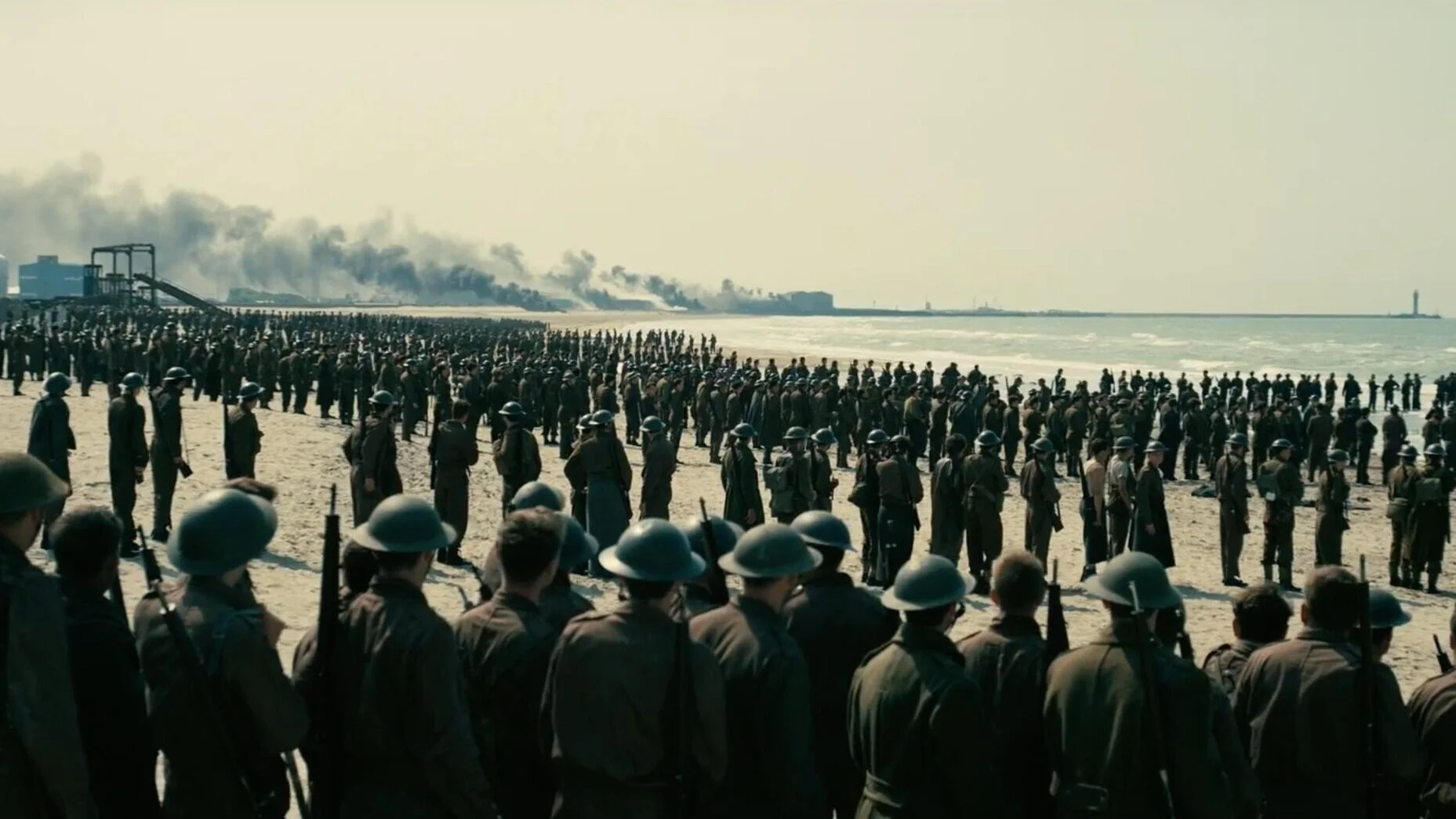Dunkirk
Christopher Nolan's epic take on the Dunkirk evacuation is unlike any war film you will have seen.
Christopher Nolan’s Dunkirk is not like any war film you will have seen. In fact, it’s not really a war film. It’s more of a rescue film. Set around the evacuation of Dunkirk, France, in the summer of 1940, it provides three perspectives of the exodus, from land, sea and air. And with the crepuscular lighting, minimal dialogue and continuous roll of Hans Zimmer’s synthesized score, the film attains an otherworldly, almost surreal ambience. Much of this mystical feel is achieved by Nolan’s complete avoidance of cliché. There are no generals or politicians to provide a point of view, no familiar engagements with the enemy and, thankfully, no gratuitous scenes of shattered human flesh. In fact, the enemy is an invisible presence, represented entirely by the stray crack of a bullet, a bomb or a Messerschmitt buzzing around the beach like a deadly hornet. And so Nolan plunges us into the very experience of the soldiers themselves, who are unsure what is going on and how help, if it comes, will arrive.
Christopher Nolan, whose most famous films have tended towards the fantastical, from his 2000 psychological thriller Memento to Interstellar, via the Dark Knight trilogy and Inception, here aims for total authenticity. Not only has he opted to use unknown actors for his main protagonists, but he has kept any CGI effects to a minimum and actually shot the thing at Dunkirk. It is ironic, then, that the film’s realism makes it feel so different from what has gone before. The security of the familiar has been removed.
The better-known faces in the cast are relegated to the supporting ranks, with Kenneth Branagh as a Royal Navy pier-master, Cillian Murphy as a shell-shocked soldier and, most effective of all, Mark Rylance as a sailor who commandeers his own boat for the rescue effort while still wearing his tie. Tom Hardy represents the Royal Air Force as a dauntless pilot whose face is all but obscured by his oxygen mask, recalling Bane, the masked villain he played in Nolan’s The Dark Knight Rises.
In a year when Winston Churchill has never seemed more omnipresent (we still have Gary Oldman’s portrayal to look forward to, in Darkest Hour), the prime minister’s famous “we shall fight them on the beaches” speech is actually read out loud from a newspaper by the British private Tommy (Fionn Whitehead). It’s a modest but powerful touch that reinforces the fact that war is ultimately a matter for the unknown soldier.
JAMES CAMERON-WILSON
Cast: Fionn Whitehead, Tom Glynn-Carney, Jack Lowden, Harry Styles, Aneurin Barnard, James D'Arcy, Barry Keoghan, Kenneth Branagh, Cillian Murphy, Mark Rylance, Tom Hardy, Brian Vernel, Bill Milner, Will Attenborough, Michael Caine (voice only).
Dir Christopher Nolan, Pro Emma Thomas and Christopher Nolan, Screenplay Christopher Nolan, Ph Hoyte van Hoytema, Pro Des Nathan Crowley, Ed Lee Smith, Music Hans Zimmer, Costumes Jeffrey Kurland.
Syncopy Inc.-Warner Bros.
106 mins. UK/USA/France/Netherlands. 2017. Rel: 21 July 2017. Cert. 12A.


